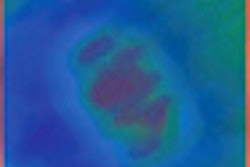Dear AuntMinnie Insider,
If there's one thing (besides the lack of reimbursement) that's kept virtual colonoscopy playing second fiddle in colon cancer screening, it's probably the prep.
In other words, VC may be faster, easier, safer, and less invasive than conventional colonoscopy, but the literature makes it clear that patients are usually more concerned about the laxative bowel preparation needed for both virtual and conventional colonoscopy. Such worries may loom large in the decision of nearly half of the eligible population to forego colorectal cancer screening of any kind.
But a decade of research on creating a robust minimal-prep virtual colonoscopy exam -- much of it conducted at Massachusetts General Hospital (MGH) and Harvard Medical School in Boston -- may finally be paying off. In a study presented at the 2010 RSNA meeting in Chicago, MGH's Michael Zalis, MD, and colleagues reported high sensitivity in a cohort of more than 600 screening patients with a combination of minimal-prep VC, advanced electronic cleansing, and computer-aided detection (CAD).
For 50-somethings who are thinking about getting screened but dread the reality, minimal-prep VC's lack of invasiveness and laxatives could very well nudge them into screening. Or so it is hoped. For more on this landmark study, check out the Insider Exclusive.
In other news, the U.S. Centers for Medicare and Medicaid Services (CMS) may have denied reimbursement for screening virtual colonoscopy (also known as CT colonography or CTC), but payment for diagnostic CTC is up to regional Medicare payors. And, increasingly, these providers are opting to pay for it, according to another study presented at the RSNA meeting. Find out where your region stands by clicking here.
Across the pond, another important study confirms that second-reader CAD performs better than concurrent CAD reading -- providing some backing to the hypothesis that readers could potentially get lazy in their search for colorectal polyps if the software routinely looks for them first. Find out what Steve Halligan, MD, and his team found by clicking here.
Then there are gastroenterologists who get tired. A study published in Gastrointestinal Endoscopy found that colonoscopists who work in three-hour shifts don't experience a falloff in sensitivity as do those who work half-day or full-day shifts. One might imagine that shorter reading shifts wouldn't be a bad idea for radiologists, either. For the rest of the study, click here.
Finally, there is evidence that "translucent view" reading, long a part of one developer's 3D reading software, really can help distinguish between adenomas and other things lying around in the colon, to the point of improving overall performance. Click here for the verdict on translucent views, and be sure to scroll down for the rest of the coverage in your Virtual Colonoscopy Digital Community.
Happy Holidays!




















